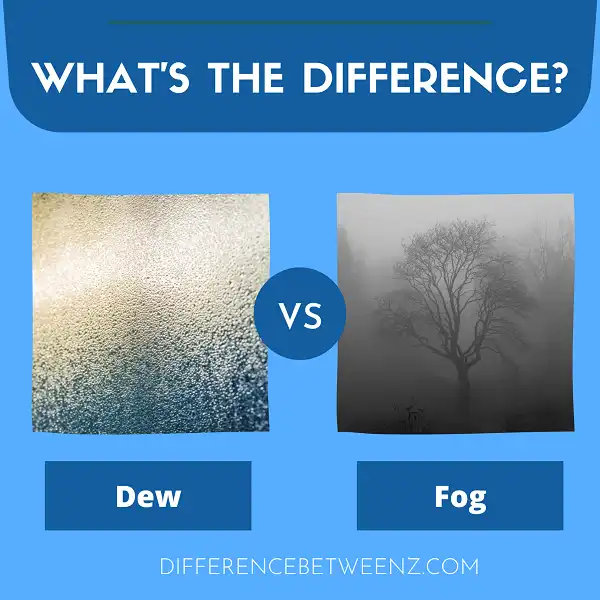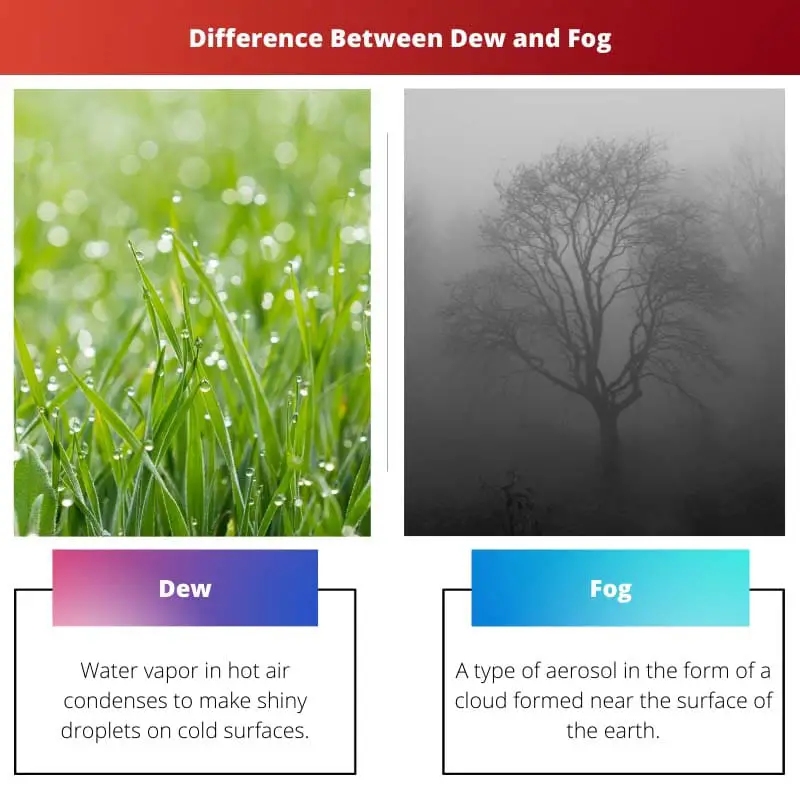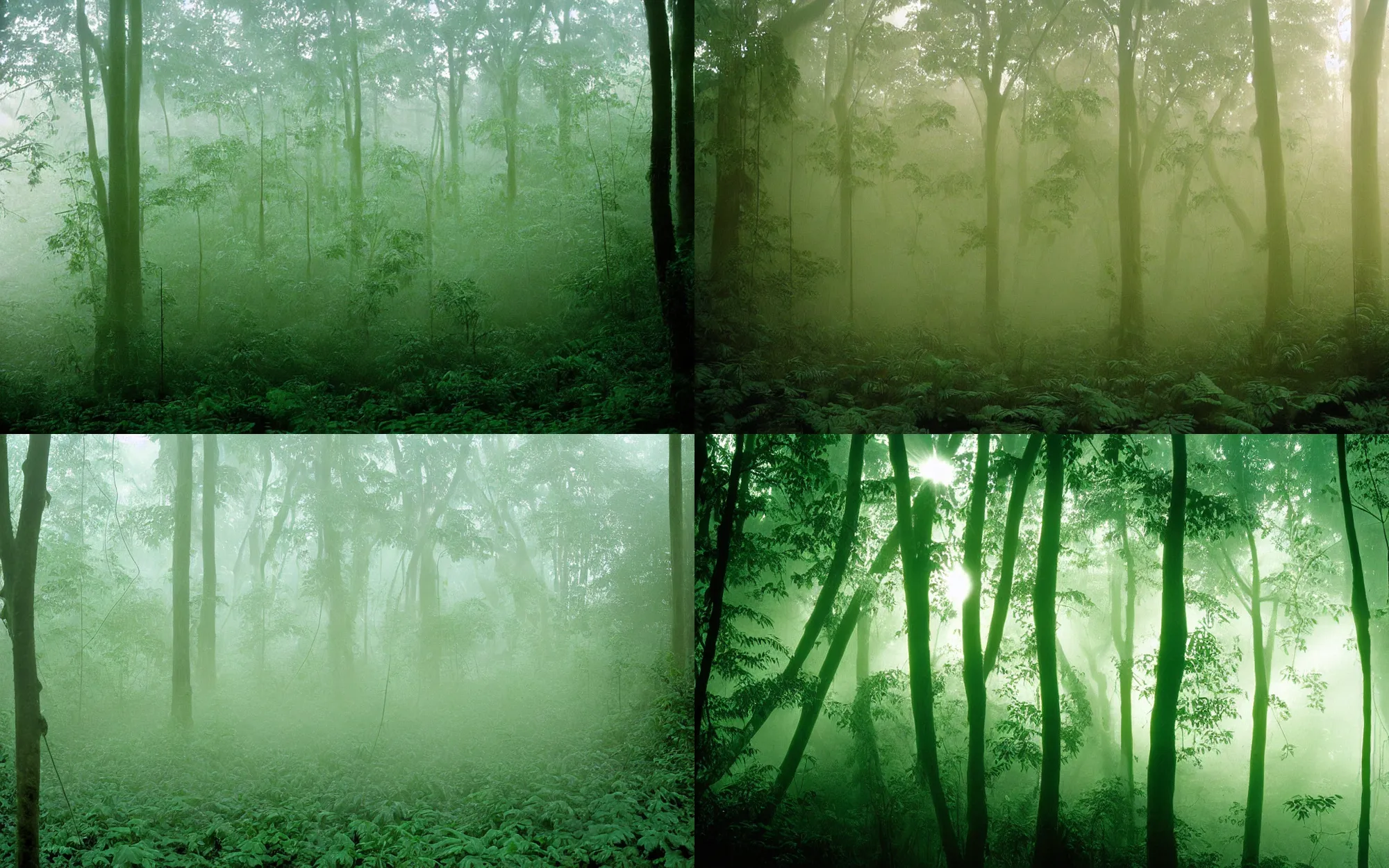Clouds Fog Or Dew Will Always Form When - Clouds, fog, or dew will always form when water vapor condenses. They are a form of precipitation, a moisture sink of the atmosphere. C water vapor is present. B relative humidity reaches 100 percent. At the point where the temperature and dew point are equal, clouds, fog or dew will form. Clouds, fog, or dew will always form when a) relative humidity reaches 100 percent. Two conditions lead to the formation of fog. Dew, frozen dew and frost form in shallow layers near the surface. Clouds, fog, or dew will always form when a water vapor condenses. Study with quizlet and memorize flashcards containing terms like clouds, fog, or dew will always form when, which are characteristics of.
Either the air is cooled to. C water vapor is present. The dew point is the temperature at which. At the point where the temperature and dew point are equal, clouds, fog or dew will form. Clouds, fog, or dew will always form when a water vapor condenses. Clouds, fog, or dew will always form when a) relative humidity reaches 100 percent. Dew, frozen dew and frost form in shallow layers near the surface. B relative humidity reaches 100 percent. Study with quizlet and memorize flashcards containing terms like clouds, fog, or dew will always form when, which are characteristics of. Two conditions lead to the formation of fog.
B relative humidity reaches 100 percent. Two conditions lead to the formation of fog. Clouds, fog, or dew will always form when water vapor condenses. At the point where the temperature and dew point are equal, clouds, fog or dew will form. C water vapor is present. The dew point is the temperature at which. They are a form of precipitation, a moisture sink of the atmosphere. Study with quizlet and memorize flashcards containing terms like clouds, fog, or dew will always form when, which are characteristics of. Clouds, fog, or dew will always form when a) relative humidity reaches 100 percent. Either the air is cooled to.
kmhouseindia Difference between Fog, Mist and Dew
The dew point is the temperature at which. Clouds, fog, or dew will always form when water vapor condenses. Clouds, fog, or dew will always form when a) relative humidity reaches 100 percent. Dew, frozen dew and frost form in shallow layers near the surface. Clouds, fog, or dew will always form when a water vapor condenses.
What the Fog? Part One Where To Expect Foggy Landscapes Fstoppers
Study with quizlet and memorize flashcards containing terms like clouds, fog, or dew will always form when, which are characteristics of. B relative humidity reaches 100 percent. Dew, frozen dew and frost form in shallow layers near the surface. C water vapor is present. Either the air is cooled to.
Realistic scary mystical clouds fog in night Halloween. Purple flows
They are a form of precipitation, a moisture sink of the atmosphere. C water vapor is present. Clouds, fog, or dew will always form when a) relative humidity reaches 100 percent. Either the air is cooled to. The dew point is the temperature at which.
The difference between fog and clouds Life's Chemistry Press
Dew, frozen dew and frost form in shallow layers near the surface. Either the air is cooled to. They are a form of precipitation, a moisture sink of the atmosphere. At the point where the temperature and dew point are equal, clouds, fog or dew will form. Clouds, fog, or dew will always form when a) relative humidity reaches 100.
Perbedaan antara Embun dan Kabut
Dew, frozen dew and frost form in shallow layers near the surface. Clouds, fog, or dew will always form when a water vapor condenses. B relative humidity reaches 100 percent. Clouds, fog, or dew will always form when water vapor condenses. Clouds, fog, or dew will always form when a) relative humidity reaches 100 percent.
Dew vs Fog Difference and Comparison
Clouds, fog, or dew will always form when water vapor condenses. At the point where the temperature and dew point are equal, clouds, fog or dew will form. B relative humidity reaches 100 percent. C water vapor is present. Clouds, fog, or dew will always form when a) relative humidity reaches 100 percent.
Clouds Dew Sunrise Free photo on Pixabay Pixabay
They are a form of precipitation, a moisture sink of the atmosphere. Clouds, fog, or dew will always form when water vapor condenses. Clouds, fog, or dew will always form when a water vapor condenses. At the point where the temperature and dew point are equal, clouds, fog or dew will form. The dew point is the temperature at which.
Even when we’re shrouded in clouds and fog, blue sky is still there. It
The dew point is the temperature at which. Two conditions lead to the formation of fog. They are a form of precipitation, a moisture sink of the atmosphere. Clouds, fog, or dew will always form when water vapor condenses. Either the air is cooled to.
Dew and Fog
Clouds, fog, or dew will always form when a water vapor condenses. Dew, frozen dew and frost form in shallow layers near the surface. They are a form of precipitation, a moisture sink of the atmosphere. Clouds, fog, or dew will always form when water vapor condenses. C water vapor is present.
Two Conditions Lead To The Formation Of Fog.
Dew, frozen dew and frost form in shallow layers near the surface. Clouds, fog, or dew will always form when a) relative humidity reaches 100 percent. Clouds, fog, or dew will always form when water vapor condenses. C water vapor is present.
At The Point Where The Temperature And Dew Point Are Equal, Clouds, Fog Or Dew Will Form.
B relative humidity reaches 100 percent. They are a form of precipitation, a moisture sink of the atmosphere. Study with quizlet and memorize flashcards containing terms like clouds, fog, or dew will always form when, which are characteristics of. Either the air is cooled to.
The Dew Point Is The Temperature At Which.
Clouds, fog, or dew will always form when a water vapor condenses.









